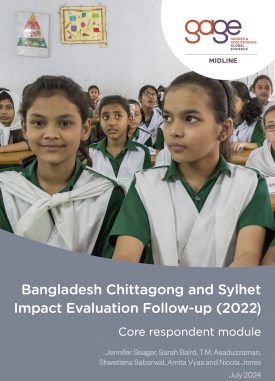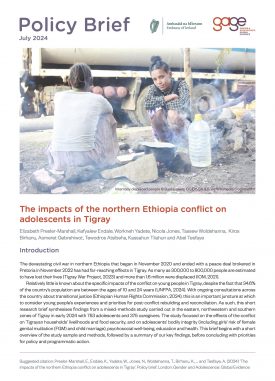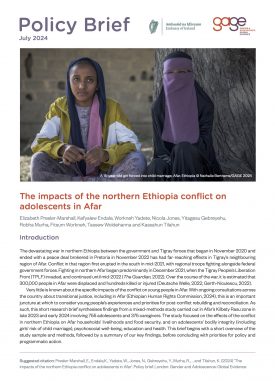The GAGE covid-19 phone survey (round 2) aims to understand the knowledge, attitudes, and behavioural changes related to covid-19 of adolescents aged 10-19 as well as their primary female caregivers.
For the adolescent, we also focus on the impact of covid-19 across the six GAGE capability areas. Measures look at:
- Education and learning: disruptions in education, ability to study/learn while schools are closed, concerns about how covid-19 will impact education in the longer term.
- Health and nutrition: self-reported health, health symptoms related to covid-19, impact of covid-19 on food security, changes in risky behaviour (e.g. smoking).
- Bodily integrity: coping mechanisms from the adolescent and her/his family, changes in violence in the community.
- Psychosocial well-being: primary health questionnaire – eight measures of mental health, locus of control, worry/fear about covid-19.
- Economic empowerment: disruptions in vocational training and/or paid work.
- Mobility, voice and agency: movement during the past seven days, ability to remain connected with friends.
Suggested citations:
Seager, J., Baird, S., Kalow, J., Oakley, E. and Taussef, S. (2021) Covid-19 phone survey (round 2) in Bangladesh. Adult female module. London: Gender and Adolescence: Global Evidence
Seager, J., Baird, S., Kalow, J., Oakley, E. and Taussef, S. (2021) Covid-19 phone survey (round 2) in Bangladesh. Core respondent module. London: Gender and Adolescence: Global Evidence


